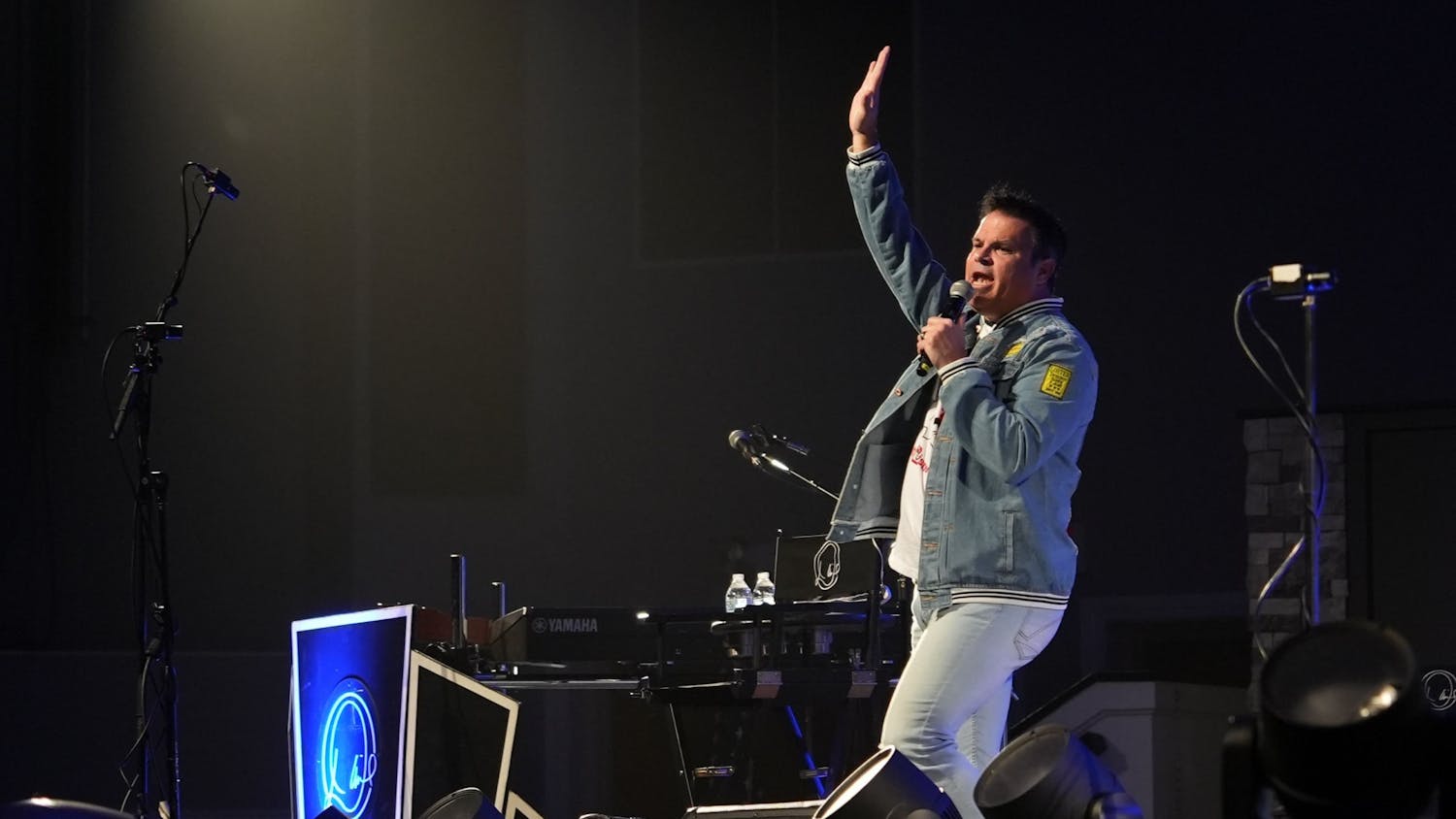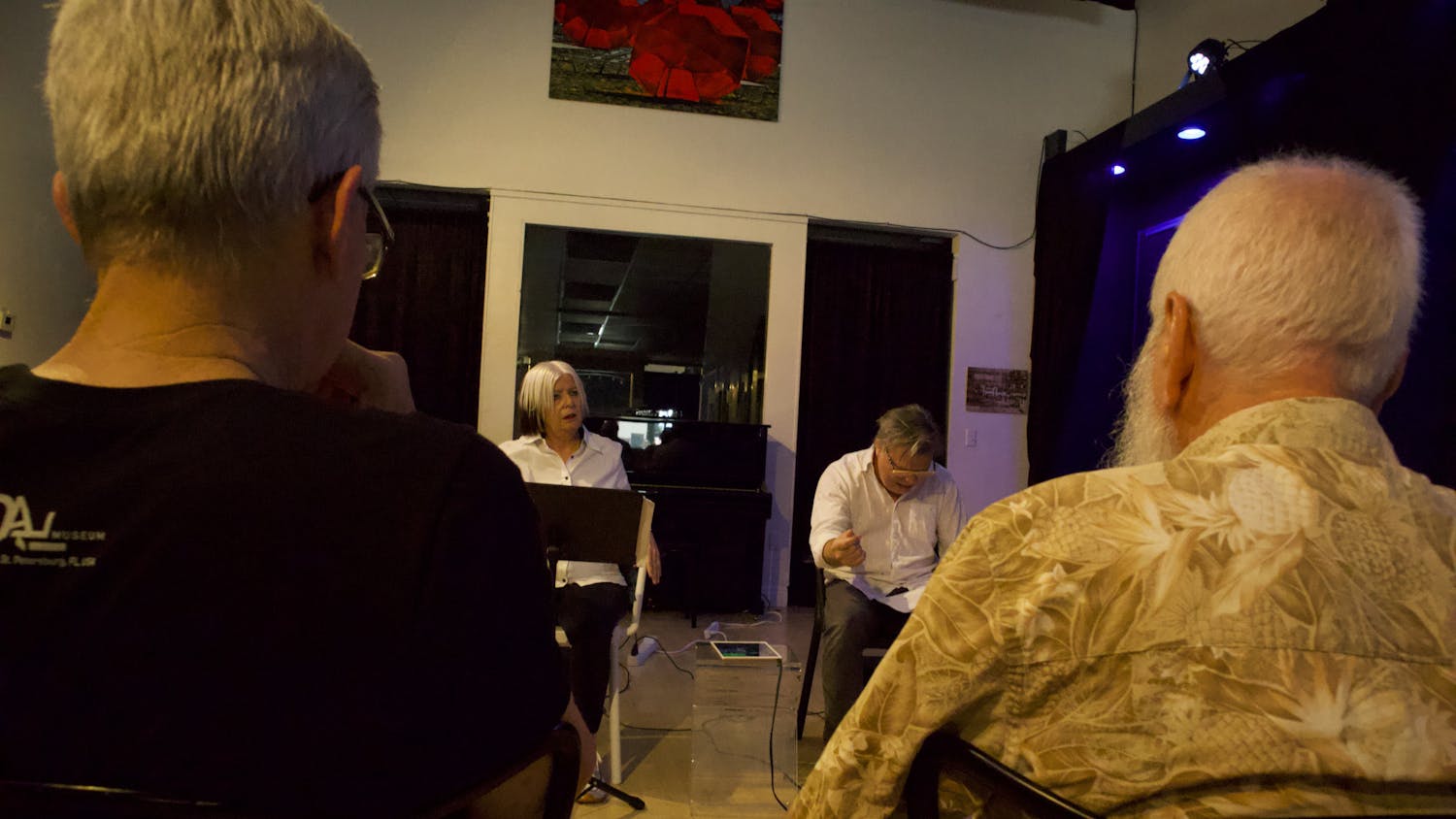Whoa. Where am I? Just a minute ago, I was walking down University Avenue, but before I knew it, I blacked out and woke up in the opinions section of the Alligator.
That was a lie. I’m not “in” the Alligator. That’d be silly. The only entities who “live” in the Alligator are Joey and Bert of “Lifeless Joey.” That’s a good comic. I heard the writer is incredibly attractive and incredibly single.
I’m new to the whole column-writing thing. It’s pretty exciting stuff. I’m excited. Are you? You don’t have to be. I don’t mind. Really, I don’t. Really. It’s fine.
So, I get this is the opinions page; every column has to have an opinion in it — apparently. But, I’d like to treat this as a discussion. Before I start flaunting my knowledge and expertise like a rabid dog, understand, I’m here to provoke thought.
I’m figuring out comedy too; I don’t claim to know what I’m talking about. No one knows what they’re talking about in this section. Have you read some of these columns?
Regardless, I’m writing to explore comedy and its implications, limitations and transubstantiations. The only thing I want to convince you of is that comedy is important, powerful and misrepresented. Let’s roll.
Fart jokes. Don’t you despise them? They’re disgusting. Disturbing. They remind us of our humanity and inability to control our most basic instincts, no matter how hard we try to enforce societal norms to suppress them.
Why do we hate fart jokes? Like, actually. Why? Well, firstly, why are farts funny in the first place? For one, they make an interesting sound. It’s a subversion of expectation when a noise comes from an orifice that isn’t a mouth. To many, subversion — or irony — is the root of comedy. Secondly, a fart signals impending misery. Others consider misery to be the root of comedy. Regardless, farts are funny.
But, why do we hate them? I think it comes down to children. Here’s my theory: Children aren’t very good at being funny. Comedy’s an art that takes practice. It also takes a well-developed mind, and young children aren’t there yet cognitively. They lack a full understanding of comic timing and pacing. They just fart and laugh. Parents and teachers tell children not to joke about farts because they don’t want children farting all over the place.
This column is getting congested, so I started a new paragraph. Ah. That’s better.
So, kids are told fart jokes aren’t funny because children can’t pull them off and adults don’t want to deal with incessant farting. That’s fine. Here’s the problem: When children get older, we don’t reintroduce fart jokes as a valid form of comedy. So, despite the comedic potential, adults live in a culture in which fart jokes are deemed immature and only made by children.
Children love comedy, but they’re bad at it. They’ll learn. They’ll practice. But, we don’t remind children to revisit those jokes. We have to be able to say, “Fart jokes are fine! You were just doing them incorrectly!”
So, why does all this matter? Why’d I spend this whole column defending fart jokes? Well, comedy’s a big deal. Comedy can be a whole bunch of things, but most importantly it can be a learning tool.
Comedy can teach you a lot about yourself because laughter is an impulse, not an active response. Your reaction to comedy is an accurate reflection of the way you perceive the world. When we stifle what we can joke about, we lose a window into ourselves. That sounds awfully hippie-dippy, but you get the gist.
Comedy matters. Good talk.
Michael Smith is an incredibly single UF mechanical engineering sophomore. His column appears on Tuesdays.





